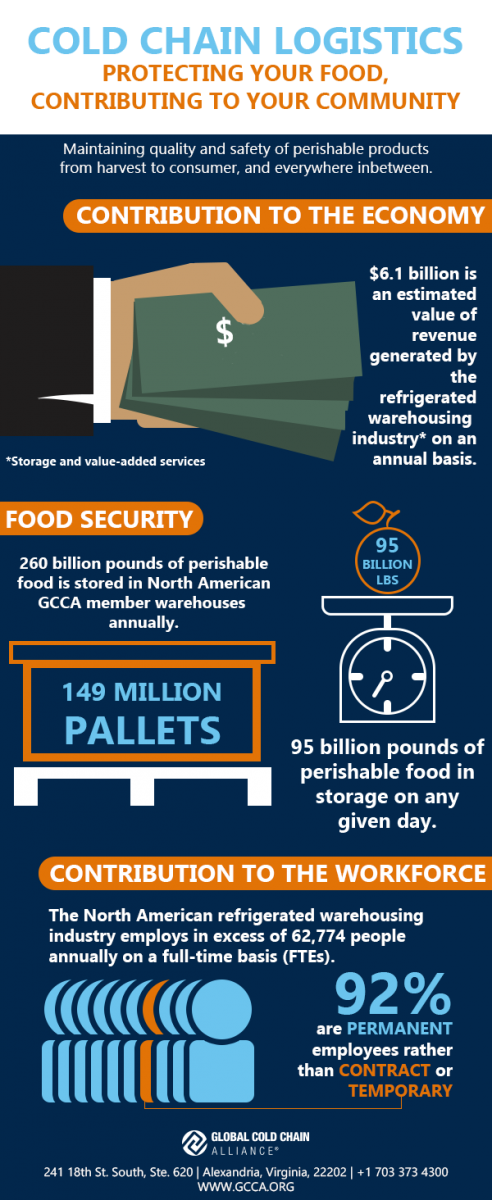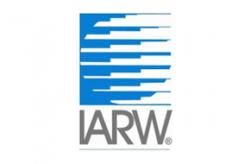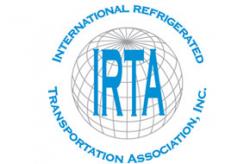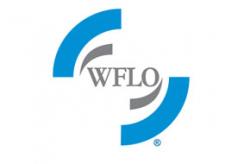About the Cold Chain
What is the cold chain?
The cold chain refers to managing the temperature of perishable products in order to maintain quality and safety from the point of origin through the distribution chain to the final consumer.

Why is the cold chain important?
The cold chain ensures that perishable products are safe and of high quality at the point of consumption. Failing to keep product at the correct temperatures can result in textural degradation, discoloring, bruising, and microbial growth. Moreover, a quality product leads to a satisfied customer, greater demand, and overall protection of public health. Cold chain providers also contribute a great deal to the economy and workforce. The infographic to the right provides more information.
How do GCCA members support a strong, maintained cold chain?
As the leading experts in temperature management for perishable commodities, GCCA members help to preserve the quality and integrity of their customers' brands by enforcing the highest standards of cold chain care and precision. Food processors, wholesalers, distributors, and any other business dealing in perishable commodities, can trust in the cold chain management expertise enforced by GCCA members. Our members serve the perishables community from end-to-end:
- Storing products, case-picking, re-packing, blast freezing, and offering many other solutions to meet their customers' needs right in the warehouse distribution center
- Designing and building facilities with unique, optimal solutions for maximum temperature-control
- Transporting products to and from points along the supply chain from harvest to retailer
No matter in which capacity they are serving their customers, GCCA members can guarantee you the utmost care in maintaining your products' integrity.
GCCA members play a role in developing the cold chain
GCCA is dedicated to the proper handling and storage of perishable products and the development of systems and best practices for the safe, efficient, and reliable movement of food to the people of the world. Through our nonprofit core partner, the World Food Logistics Organization (WFLO), GCCA supports international cold chain development through partnerships with donors, NGOs, governments, educational institutions, local associations, and private sector businesses to promote business to business knowledge through training, education, and research. Since 2002, we have completed more than 100 projects in over 60 countries.
Who bears responsibility for managing the cold chain?
Each sector of the chain, from the point at which product is harvested to the point at which it is sold, shares responsibility. Breaks in the chain may occur just as easily on a warehouse dock as they do on a supermarket floor. If one link breaks, all suffer the consequences of a dissatisfied customer.




